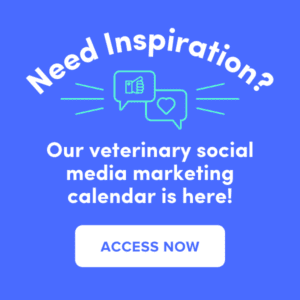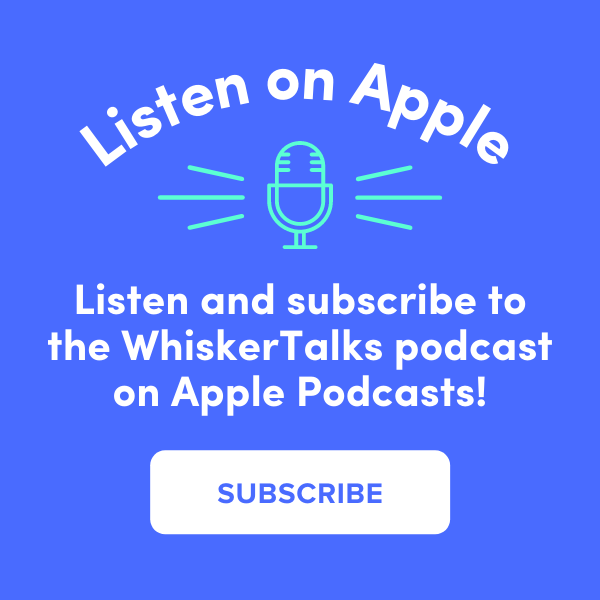This post comes to our blog from our Advertising Manager, Brandon Breshears.
2019 was an amazing, albeit challenging year when it came to digital marketing. I had the pleasure of managing over $526,964 in ad spend, helped generate over 302,000 clicks, and over 29,000,000 ad impressions! Aside from adding quite a bit of grey hair to my head, there were some pretty significant changes to both Facebook and Google ads that will have a significant impact on growing your veterinary practice.
2019 marked the first year that digital media spend outspent traditional media spend, and it’s only growing.

If you want to make sure you’re consistently driving more clients into your practice, then listen up.
Each ad platform has its own personality, quirks, and temperament, so I’ll be breaking down each of these ad platforms so that you can make sure you’re treating each platform right.
Let’s start by covering what happened with Google Ads. If I had to describe Google to someone, I’d describe it as the 6-year-old golden retriever. For the most part, it is obedient, doesn’t do too many naughty things (like ban your ad accounts), and you know that it is well established and friendly. Sometimes it poops on the rug, but hey, no one is perfect.
The beauty of Google search ads is that we have intent, which is something we don’t get on Facebook. You can tap into searches where people actually want and NEED what you have. That last bit is essential – people who NEED a veterinarian are LOOKING for a solution. We call these transactional searches. Someone wants to perform a transaction and become a client, and we put your practice front and center.
We get specific in targeting only those transactional searches; we make sure to maintain our search term reports, and what ends up happening is we get new clients coming in. This specificity is what our clients pay us to obsess over and continuously monitor, tweak, and improve.
Google is great because we have access to these people, but what Google wants to do is sell more ad space, that’s how they make more money. In July of 2018, Google consolidated all of its ad platforms from Google Adwords to Google Ads, and in doing so, signaled that Search wasn’t their only game in town these days.
This year, they have done a few things that would throw off unsuspecting advertisers to sell more ad space while at the same time decrease quality.
One of the most significant changes in 2019 was from Google’s keyword matches. What they said in this blog post was that they were going to show your searches to even more potential clients – yay! This sounds great until you realize that most veterinary practices don’t have an unlimited budget, and the keywords that we’re targeting are not broad matches but are the transactional search phrases for people who actually NEED and WANT what you have (see there was a point to all that backstory up there). Bad google, you pooped on the rug again.
Along with these keyword changes, Google removed its average position metrics, which showed us where our ads were ranking relative to our competitors. This was one of my favorite parameters, but I think it continues to signal that Google is trying to say, “Hey, give us your money, business owner, you don’t need to worry, we’ll spend it and get you more clicks.” This sounds enticing, but what ends up happening is wasted ad spend – if you don’t know what you’re doing and constantly monitoring your results.
Now let’s talk about Facebook’s ad platform. Facebook’s ad platform, which includes Facebook, Instagram, Messenger, and their Partner Network, is like the Yorkie pup who is crazy, sometimes it listens and is still being trained. Ever since the Cambridge Analytica scandal, Facebook has been consistently trying to stabilize and mature the platform.
Some of the most significant changes that came this year included the announcement at their F8 conference that Facebook will be making major changes to the platform. Intermodal messaging, groups, Instagram Stories, IGTV, and other massive shifts are in store for Facebook to keep their growth heading in the right direction. Facebook is having a record-breaking year when it comes to ad revenue, and it is still the leading trailblazer in what is possible when it comes to ad products and platforms.
One of the biggest points where Facebook shines over Google is in their interest and contextual targeting. Facebook is continually tracking and using data from its pixels to help build out remarkable standard pixel event optimization. It is incredible!
If you ever feel like Facebook is listening in on your conversations and then showing you ads (they say they aren’t, but who knows!), it is because they have so much data on all of their users.
Facebook uses Pixels, which are pieces of code to track the activity of people on every website they’re installed on, and they’ve grouped these activities into several categories which include:
- Add Payment Info
- Add to Cart
- Add to Wishlist
- Complete Registration
- Contact
- Customize Product
- Donate
- Find Location
- Initiate checkout
- Lead
- Purchase
- Schedule
- Search
- Start Trial
- Submit Application
- Subscribe
- View Content
Now, most of these standard conversion events don’t apply to veterinary practices, but there are a few that help us create campaigns with goals that can drive ROI.
This was a great year in advertising, and we know that 2020 will be even better. Need some help? I’d love to chat with you about your goals. You can request a free consultation with WhiskerCloud Advertising, by clicking here.




